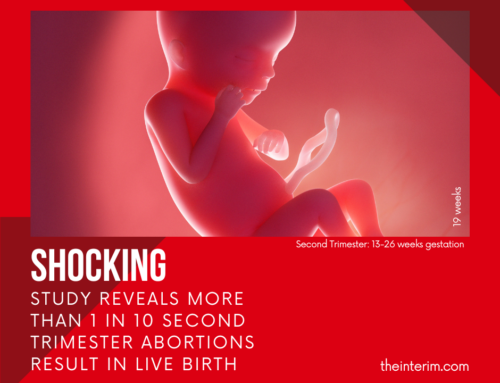| On July 25, 1978 the world witnessed the emergence of a new field of science. We were introduced to Louise Brown: a child who had been conceived outside her mother’s body, in a glass dish; the world’s first in vitro, or “test tube” baby was born.
In 1978 the time was exactly right. The sexual revolution, which divorced sex from marriage and procreation, met the ethics and technology of the day and created a revolution in biotechnology. Yet, only now, with the advent of stem cell research, are legislators becoming nervous about the consequences of these developments – 30 years too late. There are now about 1.5 million people in the world who were conceived through in vitro fertilization. Since the best IVF facilities promise only about 15-25 per cent success rate, it can be estimated that tens of millions have lost their lives in the pursuit of that 1.5 million. And those are only the ones who have been implanted. A recent census of IVF facilities in the US counted 400,000 embryos sitting in cold storage awaiting their fate. The process of IVF has spawned a number of ancillary procedures, each one fraught with a myriad of ethical problems. For instance, a form of active eugenics called pre-implantation genetic diagnosis is now being offered to screen embryos for the genes for Downs syndrome, cystic fibrosis, muscular dystrophy and other genetic diseases. Those that don’t pass are either discarded or used for research. Also, in the normal process of IVF more embryos are created than can be implanted; the “spare” embryos are frozen in liquid nitrogen. If parents don’t want another child, these living embryos can be “donated” for experimentation. Currently, IVF is being used to manufacture children to produce genetically matched tissue, such as stem cells and organs, for transplantation to cure the genetic illness of a relative. The human being as organ farm has become a reality. But it gets even stranger than this. With the introduction of gene therapy, particular genes can be removed or implanted into an already existing embryo, changing the child’s genetic heritage. Ova can be “harvested” from the dead bodies of recently aborted female children, and used for IVF, cloning experiments or other embryonic research. Embryos are being created with more than two parents. And, in some laboratories, human genetic material is being combined with non-human material to create “chimeras,” a Greek word meaning, “we don’t know what to call this.” In the last two years, the Canadian government, among many others, has attempted to introduce legislation to regulate the biotechnology industry. But the artificial manipulation of human reproduction is a fait accompli which no legislation can curtail: the idea of the researcher as a benevolent, unerring, and irreproachable social engineer has rooted itself deeply in the public mind. The few who defend human dignity, are slandered as Luddites or dismissed as “unenlightened”. And the many who share vestigial pangs of conscience, cannot curb the debasement of man with a nascent suspicion of wrongness which does not rise above fleeting apprehension. The ambiguous clauses of C-13 provide an insight into modern mind and the moral conflicts of the modern age. The question central in the debates over biotechnology, and inescapable throughout the twentieth century, is left unanswered by C-13: what is a human being? Person or thing? The bioethical questions of our time are, in large part, the product of two-hundred and fifty years of movement away from the natural law. We used to understand what a human being was: a person. We protected persons under the civil law because the natural law told us that we had to. These truths are self evident no longer. Materialism and utilitarianism have spawned a new ethic. The atrocities of the twentieth century – abortion, euthanasia, IVF, cloning, PGD, genocide, holocausts, communism, infanticide, eugenics are the fruits of this shift in philosophy. In the philosophies of Marx, Engels, Peter Singer, and Henry Morgentaler, there is no such thing as a person. A member of the species Homo Sapiens , is just another animal. With the complete acceptance of IVF given by C-13, Canada, and every country with similar laws, will have taken an irrevocable step. We will have accepted and codified an inherently hostile philosophical norm. It seems inevitable: C-13 is merely the final product of a an ethic of utility which abides no dignity; natural law has no force. With its passage, the inexorable machinery of its utilitarian logic will descend to its conclusion. From the assertions about the moral status of human embryos in C-13 we will go, inevitably, to the abolition of the very concept of personhood. In the defense of humanity, it seems that there may soon be little humanity left to defend. Hilary White is director of research for Campaign Life Coalition.and the ghastly future |



